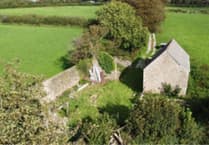Last week I wrote about the looming food crisis, and I need to say more.
As I write, reliance on overseas food supplies is already showing up the dangers. The supermarkets are now limiting the amount of cooking oil they will sell you, and the rest may just get self-limiting by price.
In poorer countries this means they go hungry. It’s important to understand there are two things going on here at the same time. There are the short-term events like the war in the Ukraine and other weather events like floods and storms.
These create short-term shortages with sharp peaks and dips in supply. Then there are the long-term trends which is mostly due to climate change, this will affect everyone.
The problem is that the short-term effects like wars are hiding the truth that climate-change is going on underlying and hiding all the long-term problems. You could say this is a double whammy!
Feeding your population and security is a countries top priority.
The truth is the UK cannot just rely on other counrties growing our food in a way that was taken for granted in the past.
It’s not rocket science to state again that if we can only grow 50% of our food at this time, and the rest is imported, that with an ever growing world population and climate change, this may not be sustainable.
The green movement along with environmentalists have long been saying we must grow more food at home. It will make us more self-reliant, reduce air miles, cut down our CO2 out-put and even help our balance of payment.
The bigger picture is the world is changing fast with global insecurity, political change and climate charge. The problem is that governments are changing far too slowly and not considering all of these factors in the round. What can I do, you may say?
Apart from not wasting food and buying more than you need for the week, probably the best thing at this time is to write to the Prime Minister and copy your MP into the letter and state we must stop building on farmland and start growing our own food on it.
We may need start-up grants, plus micro solar farms on that land that would have been built on anyway if not growing food.
The electricity generated at the edges of this land would mostly be used to run the farm and heating green-houses, and not so much large-scale power generation; that’s a different situation.
I finish in saying that we should leave a much bigger space around any farmland for wildlife.




